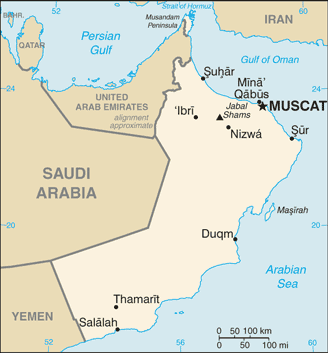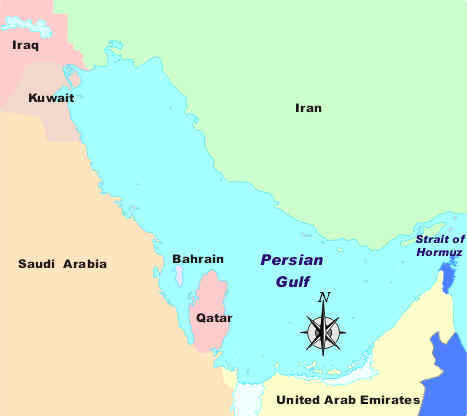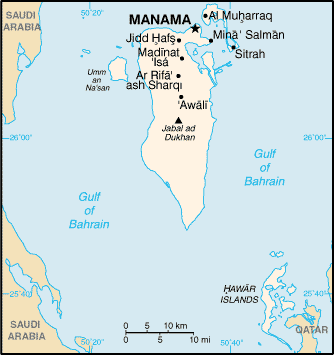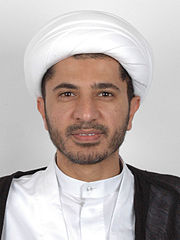Jeffrey Rudolph writes in a guest column for Informed Comment
Saudi Arabia, an Islamic absolute monarchy, has enjoyed extremely close relations with the United States, a constitutional republic. This relationship highlights the gross hypocrisy of US foreign policy: fundamentalism and dictatorship in the Arab world is only condemned when it comes garbed in anti-Americanism. In fact, Saudi Arabia makes Iran—the target of sanctions and regime change by the US for over 30 years—look relatively progressive.
The US and Saudi governments have had a clear long-term agreement. The Saudis agree to supply oil in accordance with US needs and to reinvest the resulting revenue in US assets and arms. In return, the US provides protection to the Royal family regardless of its internal repression and extremist ideology. While mutually beneficial, this compact is also the source of one of Saudi Arabia’s great contradictions: The Saudi kings depend for their security on a country widely reviled in the Arab world as Israel’s protector.
Contradictions run deep in Saudi Arabia. Attempts at domestic reform have been confronted with state-sponsored extremist preachers—in fact, Saudi kings have, on occasion used their power to protect “progressives” from harsh Saudi judges. While in the foreign policy realm, uneven state support of confrontational policies concerning Iran have been coupled with attempts to moderate US belligerence in Iraq and Palestine.
The following quiz is an attempt to supplement the rather shallow coverage of Saudi Arabia provided in the mainstream media.
The Saudi Arabia Quiz
1. Which Middle-East country has been the US’s oldest ally in the region?
-Saudi Arabia. In 2008, Saudi Arabia celebrated “the seventy-fifth anniversary of U.S.-Saudi diplomatic relations, which had started with the signing of the oil contract in 1933.” President Bush attended the celebration—flying to the Kingdom after attending celebrations in Jerusalem to mark Israel’s sixty years of existence since 1948. “Abdullah took some delight in the comparative longevity of the two anniversaries, cupping his palms open in front of him, as if weighing the relative poundage of sixty or seventy-five years of friendship in the scales.” (Robert Lacey; Inside The Kingdom: Kings, Clerics, Modernists, Terrorists, and the Struggle for Saudi Arabia; Viking; Toronto: 2009; p. 301.)
-“In May 1933, Ibn Saud granted Standard Oil of California an enormous petroleum concession for less than $200,000 [a great bargain]… Later, in the early 1940s, the California-Arabian Standard Oil Company (a consortium that became known in 1944 as the Arabian American Oil Company, or Aramco) convinced President Roosevelt to help the king by including the kingdom in the lend-lease aid program.” (Juan Cole; Engaging The Muslim World; Palgrave Macmillan; New York: 2009; p. 86.)
-“[O]il is not the whole story [of US interest in Saudi Arabia]: Saudi Arabia is also important because of its strategic location. Lend-Lease was extended to the nation in 1943 in exchange for permission to build and utilize an air force base in Dhahran. The location of this base later made it a useful tool for the Americans during the cold war. … The official relationship was launched at the highest level in the most dramatic of circumstances: at President’s Franklin Roosevelt’s post-Yalta meeting with Ibn Saud. … [W]ildly different notions of how the world worked…[did not] get in the way of the main bilateral issue: Saudi oil supply and American security guarantees for the kingdom.” (Stephen P. Cohen; Beyond America’s Grasp: A Century of Failed Diplomacy in the Middle East; Farrar, Straus and Giroux; New York: 2009; pp. 94-95.)
-The following link has a picture of the February 14, 1945 “landmark meeting between King Abdulaziz of Saudi Arabia and U.S. President Franklin D. Roosevelt onboard the U.S. Navy cruiser Quincy in the Great Bitter Lake segment of the Suez Canal. The…meeting was the first face-to-face contact between top American and Saudi leaders and served as the foundation for the longstanding relationship between Washington and Riyadh.”: “King Abdulaziz and President Roosevelt Meeting
2. Who stated the following in 1945?: “I’m sorry, gentlemen, but I have to answer to hundreds of thousands who are anxious for the success of Zionism. I do not have hundreds of thousands of Arabs among my constituents.”
-Harry Truman: President of the United States, 1945-1953.
-The above quote was stated by Truman at a “meeting in Washington with William Eddy, the U.S. chief of mission in Saudi Arabia, and with other U.S. diplomats to the major Arab countries. There had been widespread anger in the Arab world at the favor that America was showing toward the Zionist effort to create a Jewish state in Palestine, and the diplomats had been assembled to explain the reasons for Arab opposition. But nothing he heard appeared to change Truman’s mind. … Truman was not quite correct. The U.S. Census of 1940 showed 107,420 individuals classified ‘white’ who gave their ‘mother tongue’ as Arabic, and census analysts reckon the real count of Arab-Americans at three times that. But the president’s political point remained. By the 1940s the Jews were organized politically in America in a way that the Arabs never were… Today [2009] there are some 3.5 million Arab-Americans (a good number of them Christians), and their political clout does not begin to match that of the 6.4 million U.S. Jews. Following the hard-fought creation of Israel in 1948, every successive crisis in the Middle East would increase pro-Israeli feeling inside America—and then came the emergence of so-called Christian Zionism in the 1980s. Popular evangelists like Jerry Falwell and Pat Robertson preached that the return of the Jews to the Holy Land had happened in accordance with biblical prophecy—‘to stand against Israel is to stand against God,’ proclaimed Falwell in 1981.” “America was the ‘far Satan,’ in Osama’s eyes, because it was the patron and supporter of the Al-Saud, the ‘near Satan’ that was the ultimate target. … [F]ew Americans could see that it was through the selection of contradictory friends [i.e. Islamic extremists in Afghanistan and allying with the House of Saud while also supporting Israel at the expense of Arabs] that their successive governments had picked themselves this lethal foe.” (Robert Lacey; Inside The Kingdom: Kings, Clerics, Modernists, Terrorists, and the Struggle for Saudi Arabia; Viking; Toronto: 2009; pp. 216-7 and 228.)
-The culmination of one-sided U.S. support for Israel was the Bush Jr. administration. One of its earliest and most warmly welcomed guests was Ariel Sharon, the hardline enforcer of Greater Israel.
3. What was Saudi Arabia’s military expenditures for 2009 (in US dollars)? What was Israel’s?
-Saudi Arabia’s military expenditures: $39 billion. (Source here.)
-Israel’s military expenditures: $14 billion. (Source here. )
4. Why, despite spending billions on military equipment, is the Saudi state unable to defend itself?
-“Even after Saudi oil was fully nationalized in 1980, Washington’s politico-military elite maintained their pledge to defend the existing Saudi regime and its state whatever the cost. Why…could the Saudi state not defend itself? The answer was because the Saud clan, living in permanent fear, was haunted by the spectre of the radical nationalists who had seized power in Egypt in 1952 and in Iraq six years later. The Sauds kept the size of the national army and air force to the barest minimum to minimize the risk of a coup d’état. Many of the armaments they have purchased to please the West lie rusting peacefully in desert warehouses. For a decade and a half in the late 1970s and ‘80s, the Pakistan army, paid for by the Saudi treasury, sent in large contingents to protect the Saudi royal family in case of internal upheavals. Then, after the first Gulf War, the American military arrived.” (Tariq Ali; The Duel: Pakistan on the Flight Path of American Power; Scribner; New York: 2008; p. 265.)
-“Relatively small in number, in order to minimize the domestic risk of a republican coup d’état of the kind that brought down monarchies in Egypt, Iraq, and Libya, it [the Saudi military] is impressively armed with equipment bought at prohibitive prices in what has proved to be a bonanza for Western cannon merchants. Thus, for a population four times the size of that of neighboring Jordan, the Saudi kingdom has barely twice as many personnel in its armed forces, but it spends thirty-three times what the Hashemite kingdom spends on its own military budget. … Much of Riyadh’s most advanced weaponry is ‘pre-positioned’ so as to be available for eventual use by the U.S. troops… It is an open secret that the huge airport at Jeddah is not designed merely for the transit of pilgrims to Mecca.” (Gilbert Achcar; Eastern Cauldron: Islam, Afghanistan, Palestine, and Iraq in a Marxist Mirror; Monthly Review Press; New York: 2004; pp. 71-72.)
-“The original function of the [Saudi National] Guard was to enlist the loyalty of the tribes to protect the royal family against any threat… The Guard was founded at a time of suspected military coups, so its first bases were sited close to Riyadh and the major cities. The idea was that the Guard could block hostile forces coming from the more distant army and air force bases on the borders. Its anti-aircraft weapons were designed to shoot down Saudi fighter planes. Its antitank rockets had to be good enough to take on the Saudi Army.” (Robert Lacey; Inside The Kingdom: Kings, Clerics, Modernists, Terrorists, and the Struggle for Saudi Arabia; Viking; Toronto: 2009; p. 184.)
-Note that the respective populations of Israel and Saudi Arabia are 7.6 million (75% are Jewish) and 25.7 million (including 5.6 non-nationals). Therefore, Saudi Arabia has the population to more than match Israel’s military.
5. Which country is the largest provider of crude oil to the US?
-Canada. “The top five sources of US crude oil imports for November [2010] were Canada (1,975 thousand barrels per day), Mexico (1,229 thousand bpd), Saudi Arabia (1,119 thousand bpd), Venezuela (884 thousand bpd), and Nigeria (806 thousand bpd).” Source here.
-While the US does not rely on Saudi oil, according to Noam Chomsky "What has been central to [US] planning [concerning Middle East energy resources] is control, not access, an important distinction. The United States followed the same policies long before it relied on a drop of Middle East oil, and would continue to do so if it relied on solar energy. Such control gives the United States 'veto power' over its industrial rivals, as explained in the early postwar period by influential planners, and reiterated recently with regard to Iraq: a successful conquest of Iraq would give the United States 'critical leverage' over its industrial rivals, Europe and Asia, as pointed out by Zbigniew Brzezinski, an important figure in the planning community. Vice President Dick Cheney made the same point, describing control over petroleum supplies as 'tools of intimidation and blackmail'—when used by others. He went on to urge the dictatorships of Central Asia, Washington’s models of democracy, to agree to pipeline construction that ensures that the tools remain in Washington’s hands." (Source here.)
-The issue of “control of oil” is fundamental. It is why the US accepts Saudi Arabia being China’s principal supplier of crude oil and why it accepts Russia-Saudi joint ventures connected to oil.
-Saudi Arabia has the world's largest oil reserves and is the world's largest oil exporter. Oil accounts for more than 90% of exports and nearly 75% of government revenues, facilitating the creation of a welfare state. (
Source here.)
Keep reading Rudolph: Can You Pass The Saudi Arabia Quiz?
Retweet 26 Share 64 StumbleUpon 539 Printer Friendly Send via email
Posted in Saudi Arabia | 4 Comments



